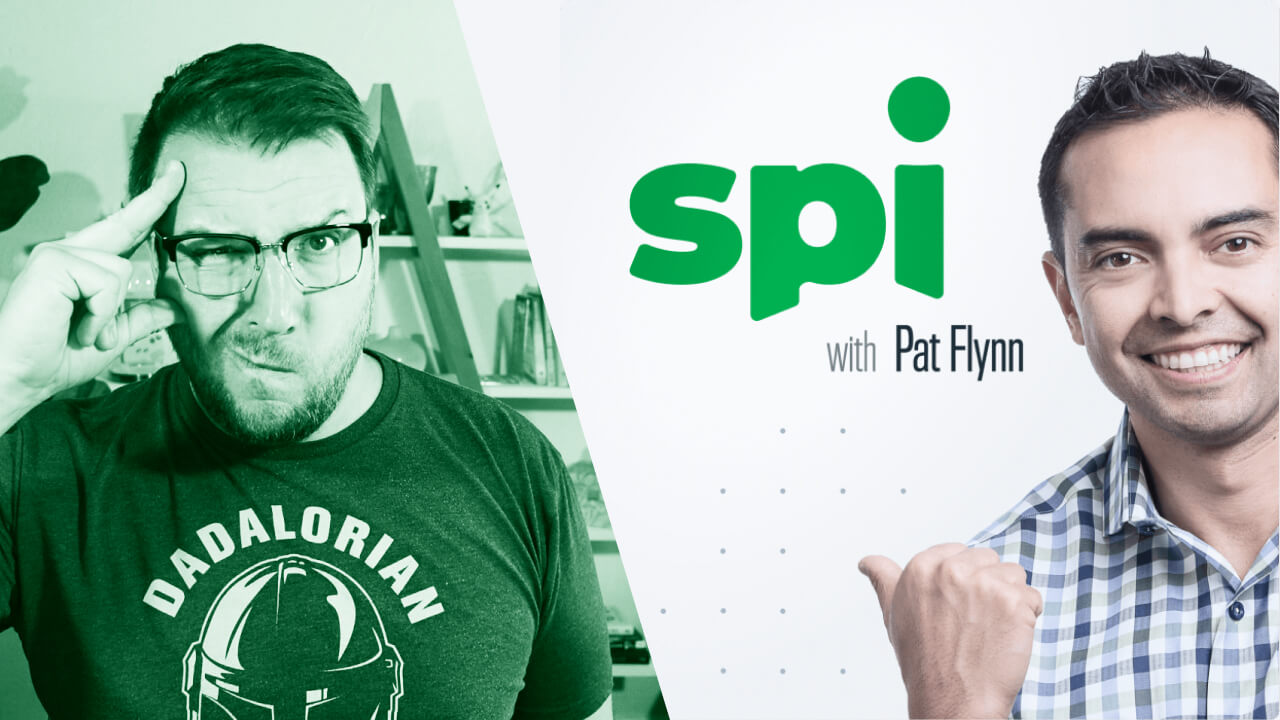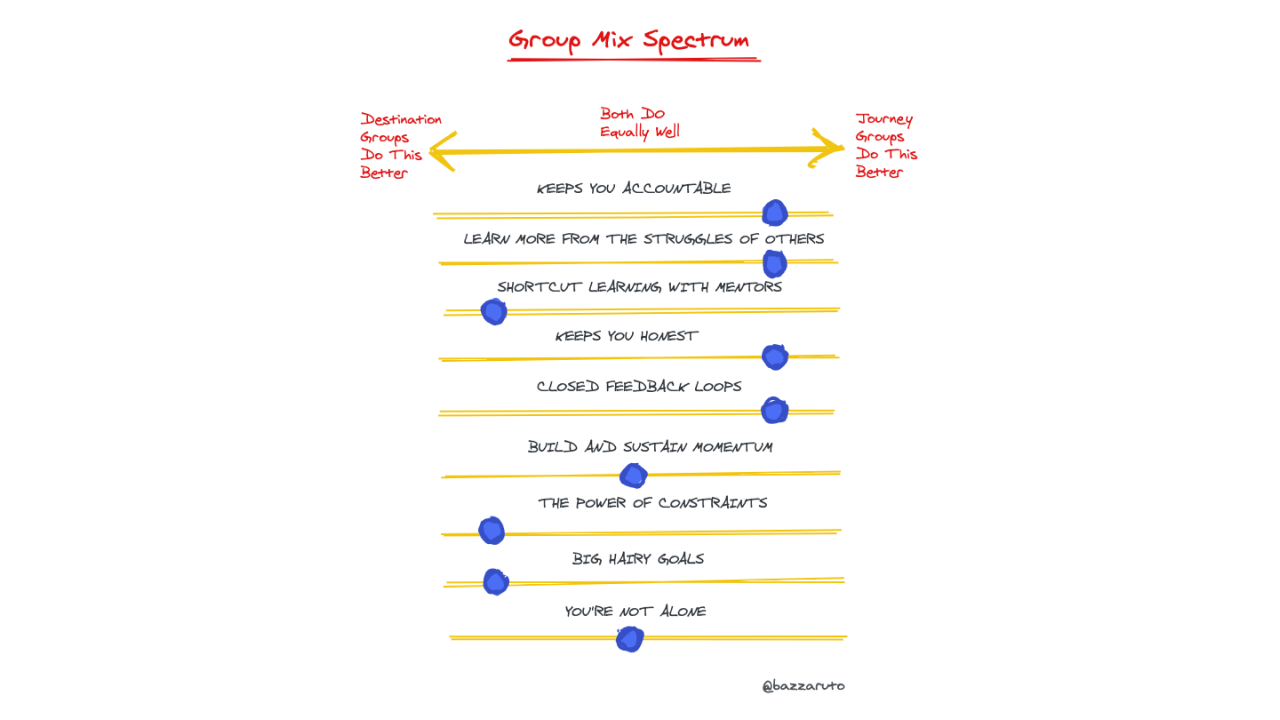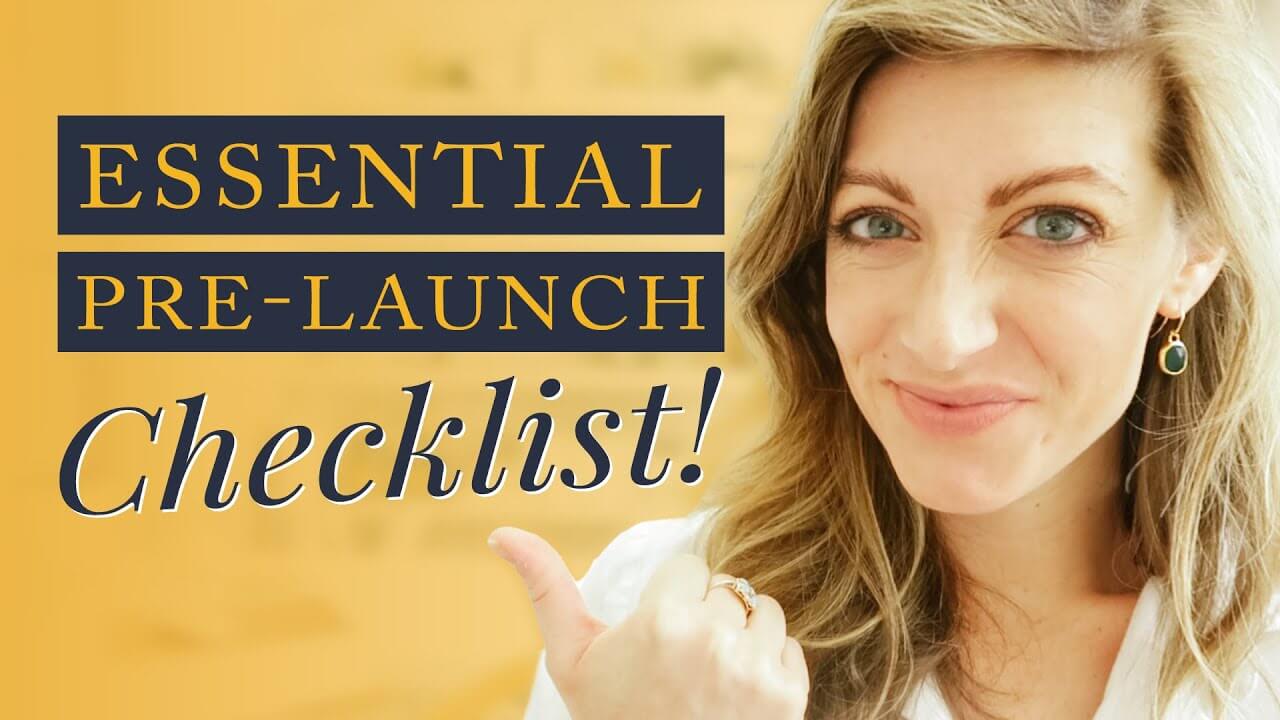Hey Reader 
I hope you enjoy today's email, and feel free to drop me a line if you have any feedback, questions, or anything else!
Or, let's
jump on a call
and just talk.
I'd love that! 
Pat Flynn and Dustin Bakkie talk about inclusivity and accessibility, Andrew Barry writes about group learning, and Ashlyn Carter shares her pre-launch workflow.

 Podcast
Podcast
 Inclusivity
Inclusivity
SPI 515: How to Create Accessible Content
Pat Flynn talks with Dustin Bakkie of The HIT Lab about inclusivity and accessibility. This is an important topic especially if you care about maximising the impact of your courses and the treasures you're creating for your audience.
Here are my biggest takeaways:
-
 Universal, inclusive design benefits everyone, not just those with accessibility needs
Universal, inclusive design benefits everyone, not just those with accessibility needs -
 People learn differently, even your typical audience—create courses with that in mind
People learn differently, even your typical audience—create courses with that in mind -
 Follow a diverse group of people—expose yourself to the different ways people learn
Follow a diverse group of people—expose yourself to the different ways people learn -
 Start with a simple document outline, using proper headings and ALT text for images
Start with a simple document outline, using proper headings and ALT text for images -
 Style and brand your content only after you've created a solid, accessible alternative
Style and brand your content only after you've created a solid, accessible alternative -
 Use tools like Read&Write and GrackleDocs to check your documents for accessibility
Use tools like Read&Write and GrackleDocs to check your documents for accessibility -
 Make audio versions of your videos and transcribe everything—Descript simplifies this
Make audio versions of your videos and transcribe everything—Descript simplifies this -
 For live audio/video, look into Otter and Google Chrome's Live Captioning
For live audio/video, look into Otter and Google Chrome's Live Captioning -
 Some transcriptions, even if imperfect, are better than no transcriptions
Some transcriptions, even if imperfect, are better than no transcriptions -
 Tell your audience your transcriptions are auto-generated—they'll look past the errors
Tell your audience your transcriptions are auto-generated—they'll look past the errors
 Pat Flynn + Dustin Bakkie via smartpassiveincome.com
Pat Flynn + Dustin Bakkie via smartpassiveincome.com
 Random Picks from past editions
Random Picks from past editions

 Structure & Design
Structure & Design
 Article
Article
Why You Need These Two Groups to Power Group Learning
This is a great article from Andrew Barry, fundamental to his idea of Transformative Online Courses and his teaching.
First, 9 reasons why group learning works:
-
 Groups keep us accountable to show up and do the work
Groups keep us accountable to show up and do the work -
 We learn more from the struggles and failures of others, than we do of our own
We learn more from the struggles and failures of others, than we do of our own -
 Having a mentor to guide us and answer our questions helps us learn faster
Having a mentor to guide us and answer our questions helps us learn faster -
 Sharing ideas with others helps us see more clearly, and it keeps us honest
Sharing ideas with others helps us see more clearly, and it keeps us honest -
 We learn through feedback—particularly, giving feedback helps us internalise ideas
We learn through feedback—particularly, giving feedback helps us internalise ideas -
 We're able to build and sustain our momentum with the help of others
We're able to build and sustain our momentum with the help of others -
 Groups are constrained by their commonality, and that helps us find focus
Groups are constrained by their commonality, and that helps us find focus -
 Healthy competition pushes us beyond our comfort zone—in the end, everyone wins
Healthy competition pushes us beyond our comfort zone—in the end, everyone wins -
 We stop feeling alone, and start feeling part of a community in pursuit of a goal
We stop feeling alone, and start feeling part of a community in pursuit of a goal
What types of groups do we need?
-
 Destination Groups, led by people who are already where we aspire to be
Destination Groups, led by people who are already where we aspire to be -
 Journey Groups, led by people who are a step ahead, but still on the journey with us
Journey Groups, led by people who are a step ahead, but still on the journey with us
Why do we need different types of groups?
-
 Destination groups excel at 3, 7 and 8, but Journey groups are better at 1, 2, 4 and 5
Destination groups excel at 3, 7 and 8, but Journey groups are better at 1, 2, 4 and 5 -
 Destination Groups can be intimidating, but provide better focus and guidance
Destination Groups can be intimidating, but provide better focus and guidance -
 Journey groups lack constraints, but can be more supportive and keep us accountable
Journey groups lack constraints, but can be more supportive and keep us accountable
Want to learn more?
-
 In this thread, Andrew further breaks down Journey Groups into 3 distinct subgroups: Mentor, Peer Supporter, and Accountability Groups
In this thread, Andrew further breaks down Journey Groups into 3 distinct subgroups: Mentor, Peer Supporter, and Accountability Groups -
 Here's the second part of Andrew's article: How to Design Transformational Group Learning. I wrote a summary for it in CCW #35.
Here's the second part of Andrew's article: How to Design Transformational Group Learning. I wrote a summary for it in CCW #35.
 Andrew Barry via curiouslionlearning.com
Andrew Barry via curiouslionlearning.com

 Video
Video
 Sales & Marketing
Sales & Marketing
Pre-Launch Workflow: Everything I Do the Week Before I Launch!
Ashlyn Carter shares her tips on how to prepare for going into launch mode:
-
 Prepare to feel like a broken record, repeating the same offer in lots of different ways
Prepare to feel like a broken record, repeating the same offer in lots of different ways -
 Prepare everything before your launch—all the assets, social media posts, bonuses, etc
Prepare everything before your launch—all the assets, social media posts, bonuses, etc -
 Clear your schedule so that during launch, your only job is talking to actual people
Clear your schedule so that during launch, your only job is talking to actual people -
 Have drafts ready to publish, but don't automate it all—mix in some realtime vibe
Have drafts ready to publish, but don't automate it all—mix in some realtime vibe -
 Think about your environment and visual cues that can help you get in the zone
Think about your environment and visual cues that can help you get in the zone -
 Use testimonials from past clients/students to fight the inevitable impostor syndrome
Use testimonials from past clients/students to fight the inevitable impostor syndrome -
 Get your household affairs in order—e.g. plan meals + set your family's expectations
Get your household affairs in order—e.g. plan meals + set your family's expectations
 Ashlyn Carter via youtube.com
Ashlyn Carter via youtube.com
Thank you for subscribing, it means so much to me!
If you enjoy this newsletter, please help me spread the word by
forwarding this email to someone or
 tweeting this edition!
tweeting this edition! 
Until next time, Reader! 
Merott